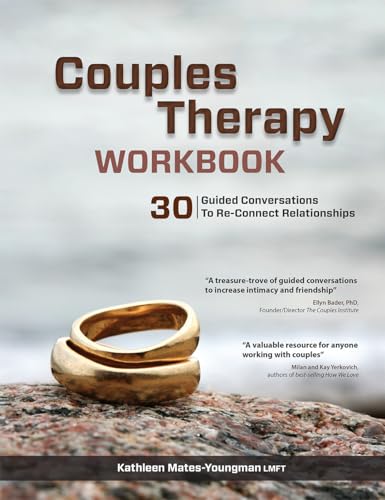This Post Contains Affiliate Links. Please Read Our Disclosure for Full Information.
Trust is the cornerstone of any meaningful relationship, whether personal or professional. It takes years to build, moments to break, and often a lifetime to rebuild. When trust is shattered, it feels like the foundation of a once-sturdy structure has crumbled. But here’s the good news: while rebuilding trust isn’t easy, it is possible with intentional actions and a willingness to grow together.
Let’s explore why trust matters, how it is broken, and, most importantly, the seven steps to restoring it effectively.
Why Trust is the Foundation of Every Relationship
Trust provides stability and security. It allows individuals to feel safe, valued, and respected in any relationship. In romantic relationships, it fosters intimacy. In friendships, it creates unshakeable bonds. At work, it fuels collaboration and productivity.
When trust is intact, communication thrives, misunderstandings are resolved more quickly, and conflict can be tackled with empathy. However, without it, even the smallest issues can escalate into insurmountable challenges.
How Trust is Broken
Breaking trust often happens through actions that create doubt, insecurity, or betrayal. Common reasons include dishonesty, infidelity, broken promises, or neglecting responsibilities. Even unintended actions, like forgetting a significant event or failing to keep a secret, can erode trust over time.
The effects of broken trust are profound. Emotional scars, anxiety, and distance often replace what once was a harmonious connection. But these feelings, as overwhelming as they may seem, don’t have to be permanent. With the right approach, relationships can heal.
1. Acknowledge the Betrayal Openly
The first step to rebuilding trust is acknowledgment. Without addressing the elephant in the room, resentment will continue to fester. Whether you’re the one who broke the trust or the one who feels betrayed, an honest conversation is essential.
Speak calmly and clearly about the incident that caused the rift. If you broke the trust, own your actions without deflecting or justifying. Express genuine remorse and take responsibility for the hurt caused.
2. Communicate Transparently and Frequently
Effective communication is the bridge between distrust and healing. To rebuild trust, both parties need to feel heard, validated, and understood. Set aside time to talk regularly about feelings, expectations, and boundaries.
During these conversations, practice active listening. Avoid interrupting, making excuses, or minimizing the other person’s emotions. A simple, “I understand how that hurt you, and I want to make things right,” can go a long way.
3. Commit to Action and Follow Through
Words are powerful, but actions speak louder. Rebuilding trust requires consistent effort. Make specific promises that address the concerns raised and ensure you deliver on them. If your partner has asked for more honesty, be forthright about even small details.
For example, if you promise to check in regularly, set reminders to follow through. Showing reliability is the most effective way to restore confidence.
Recommended Product: Trust After Betrayal: A Guide to Healing – This guide provides practical steps to recover from broken trust in relationships.
4. Practice Patience and Empathy
Healing takes time, and rebuilding trust is no exception. Both parties must allow room for mistakes and setbacks during the process. Empathy is especially important for understanding the pain caused by the betrayal.
If you’re rebuilding trust, remind yourself that it’s okay for the other person to take time to forgive. On the other hand, if you’ve been hurt, recognize that progress may be slow, but progress is still progress.
5. Set Clear Boundaries
Boundaries are essential to rebuilding trust. They define what is acceptable moving forward and help prevent the same mistakes from recurring. Sit down together and outline clear expectations, whether that’s agreeing to avoid certain behaviors or committing to better communication habits.
Respecting these boundaries reinforces accountability and shows a shared commitment to repair the relationship.
6. Seek Professional Help When Needed
Sometimes, the wounds of betrayal run deep, making it hard to navigate the rebuilding process without outside support. Therapy or counseling can provide a neutral space to explore the emotions and issues at hand.
Couples therapy, in particular, can offer valuable tools to rebuild trust while strengthening the relationship. A trained professional can help both parties articulate their feelings constructively and work towards mutual understanding.
Recommended Product: The Couples Therapy Workbook – A practical resource for navigating relationship challenges together.
7. Celebrate Small Wins
Rebuilding trust is a long journey, but celebrating small milestones along the way can make it feel more achievable. Recognize the moments where progress has been made, whether it’s a tough conversation that ended well or an act of vulnerability that was appreciated.
Gratitude and acknowledgment can motivate both parties to keep working towards a healthier relationship.
Recommended Product: Gratitude Journal for Couples – A tool to foster appreciation and connection while rebuilding trust.
The Role of Trust in a Renewed Relationship
When trust is restored, relationships often emerge stronger than before. The process forces individuals to confront uncomfortable truths, re-evaluate priorities, and grow both individually and together. With patience and dedication, a once-broken bond can transform into an unshakable partnership.
Rebuilding trust isn’t just about fixing what’s broken—it’s about creating something new and stronger than before. Every step you take brings you closer to a healthier, more fulfilling connection. So, start today with open communication, actionable steps, and a commitment to healing.
Discover more from Serenity Talks
Subscribe to get the latest posts sent to your email.






